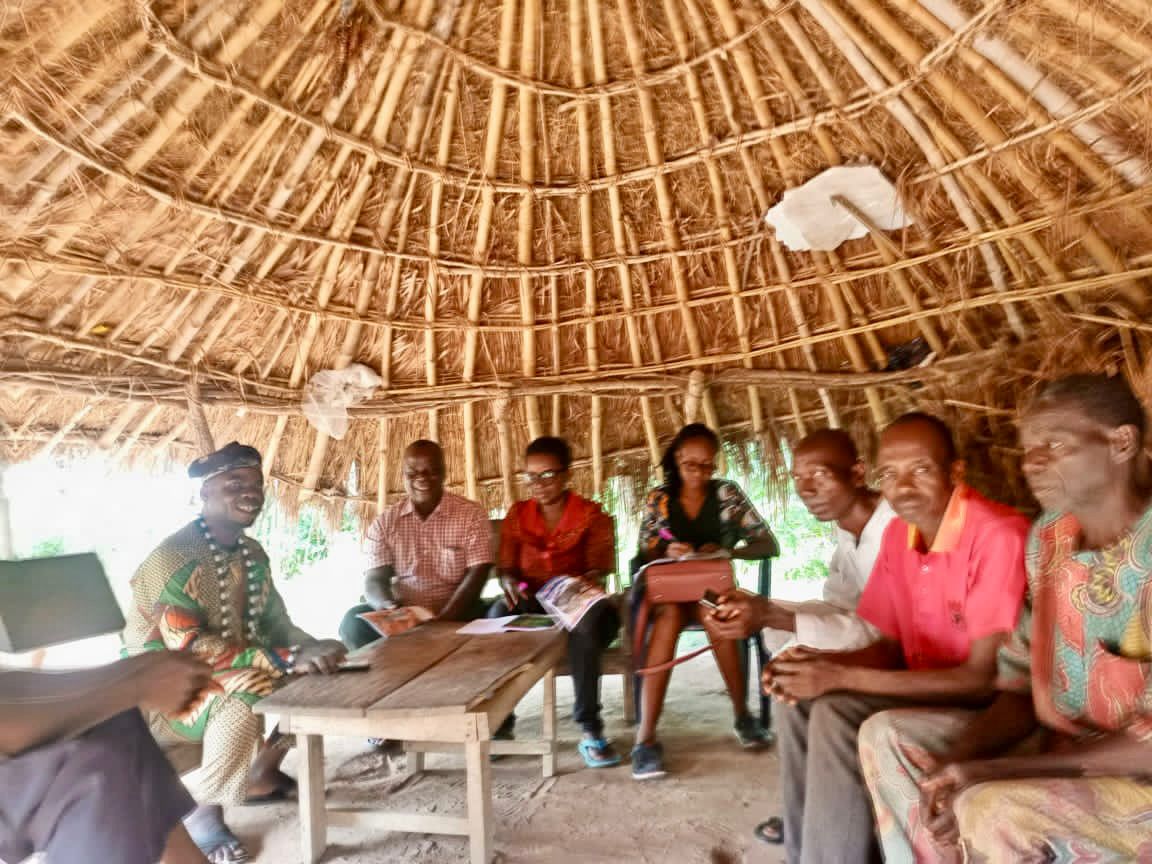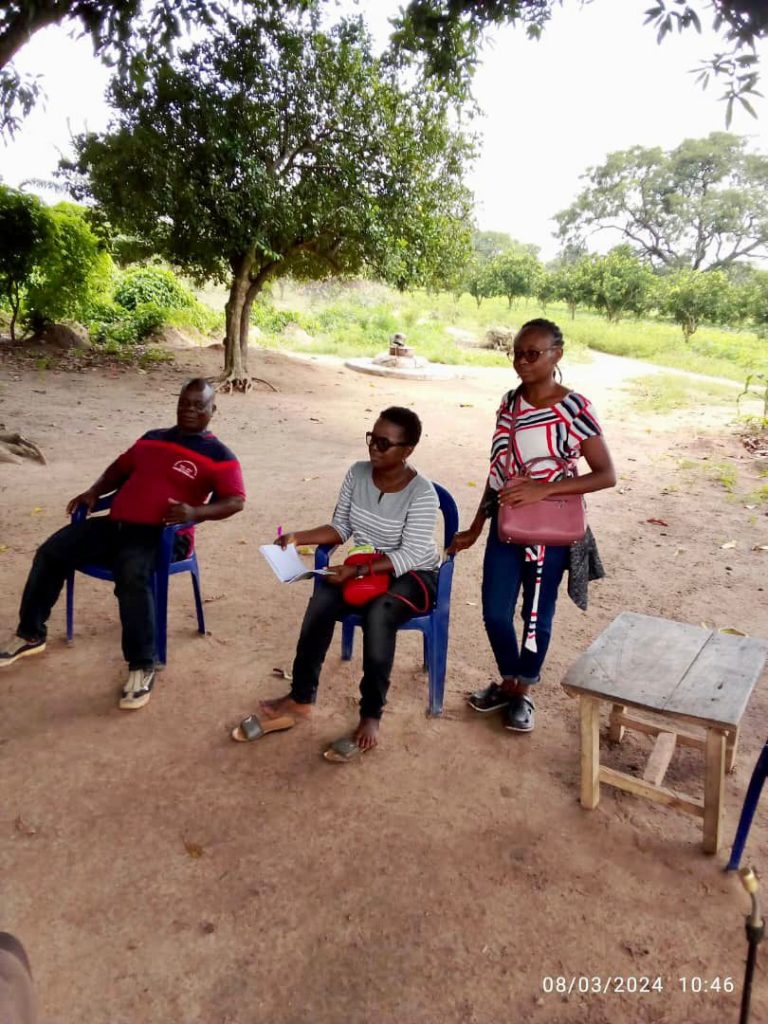
In a collaborative effort to uplift the Mbagwaza community in Ushongo Local Government Area, Benue State, Nigeria, OCMM has partnered with UNICEF and the Benue State Rural Water Supply and Sanitation Agency (BERWASSA) through the WaSH program to conduct a one week comprehensive needs assessment from the 2nd-8th August, 2024 to identify the most pressing challenges in sanitation, infrastructure, and water hygiene, with the ultimate goal of enhancing the health and well-being of the community.

Sanitation: A Call to Action
Our findings revealed significant gaps in access to proper sanitation across Mbagwaza. Out of the 2,293 households surveyed, only 237 (10.3%) have improved toilet facilities, meeting basic sanitation standards. Shockingly, a staggering 1,505 households (65.5%) still practice open defecation, exposing the entire community to severe health risks.
The situation in schools is equally concerning. Among the 20 primary and secondary schools assessed, 16 (80%) have toilet facilities, though many are substandard. Meanwhile, 4 schools (20%) lack any form of toilet facilities, leaving students without a safe and hygienic environment for their basic needs.
These findings underscore the urgent need for targeted interventions to improve sanitation infrastructure, promote healthy hygiene practices, and create a safe learning environment for children.

Health Facility Insights
On a more positive note, our assessment of the 7 health facilities in Mbagwaza revealed that all have at least one functional toilet. This is a promising sign that hygiene and sanitation standards are being upheld in healthcare settings, reducing the risk of infections and ensuring a safer environment for patients and staff.
Public Facility Sanitation: A Growing Concern
The assessment of public facilities paints a troubling picture:
Markets: None of the 4 markets have toilet facilities, posing serious health risks to both vendors and customers.
Worship Centers: While 21 out of 29 worship centers (72%) have toilets, 8 centers are still without these essential facilities.
Social Centers: Both social centers in the community lack toilet facilities, leading to uncomfortable and unhygienic conditions for users.
These gaps highlight the critical need for interventions to improve sanitation in public spaces, ensuring that everyone in the community has access to a safe and hygienic environment.

Water Access: A Matter of Urgency
Water access remains a significant challenge in Mbagwaza. Of the 12 boreholes in the community, only 4 (33%) are functional, providing reliable access to underground water. The remaining 8 boreholes (67%) are non-functional, leaving the community dependent on streams and rainwater collection—both unreliable and unsafe water sources.
Immediate attention is needed to repair and maintain these non-functional boreholes to ensure the community has sufficient and safe water for their daily needs.
Community Livelihood and Transportation
Mbagwaza is primarily an agricultural community, with residents cultivating a variety of crops, including yams, potatoes, cassava, beans, rice, and more, to sustain their livelihoods. Motorbikes serve as the primary mode of transportation, with many young men operating motorcycle taxis to supplement their income.
However, the lack of proper roads and infrastructure poses significant challenges. The community relies on footpaths and informal routes, making transportation and mobility difficult, even to markets where their farm produce can be sold. So the community remains impoverished in basic social amenities.

Addressing Dietary Habits and Substance Use
The dietary habits in Mbagwaza are rooted in traditional staples like akpu, gari, beans, and rice, with akpu being the most consumed. However, a troubling trend has emerged: widespread consumption of sachet alcohol and smoking, particularly among the youth. This behavior, also prevalent among older adults, poses serious health risks and underscores the need for community-wide health education and intervention.
Child Marriage: A Critical Issue
One of the most alarming findings of our assessment is the prevalence of child marriages in this community. Girls as young as 11-15 years old are being married off, often becoming mothers while still children themselves. Even when married to younger men in their 20s, these unions perpetuate power imbalances and severely limit the girls’ opportunities for education and personal growth. Also causing complications during pregnancies and deliveries due to their very young age.
Addressing child marriage is critical to empowering these young girls and providing them with the opportunities they deserve.
Moving Forward
The needs assessment conducted in Mbagwaza has provided us with vital insights into the challenges faced by this community and other underserved communities in similar settings. With this knowledge, OCMM, in partnership with UNICEF and BERWASSA, is committed to developing and implementing targeted interventions to address these critical issues.
We believe that by working together, we can bring lasting change to the Mbagwaza community, improving sanitation, water access, and overall quality of life. Join us in our mission to uplift this community and other underprivileged communities in Nigeria, and create a brighter, healthier future for all their residents.
